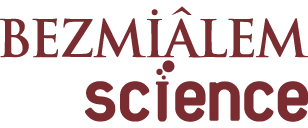ÖZET
Amaç:
Bu çalışma 1-3 yaş döneminde çocuğu olan ebeveynlerin çocuk yetiştirmede kendi becerilerini değerlendirmeleri amacıyla geliştirilen ebeveynlik becerilerini değerlendirme ölçeğinin geliştirilmesi, geçerlik ve güvenirliğinin yapılması amacıyla planlanmıştır.
Yöntemler:
Araştırma metodolojik yöntem kullanılarak tasarlanmış geçerlik ve güvenirlik çalışmasıdır. Çalışma, Eylül-Ekim 2022 tarihleri arasında 1-3 yaş arasında çocuğu olan 400 ebeveyne uygulanmıştır. Ebeveynlik Beceri Değerlendirme Ölçeğinin geçerliği, kapsam geçerliği ve yapı geçerliği ile test edilmiştir. Ölçeğin güvenirliğini belirlemek için test tekrar test, Cronbach Alpha güvenirlik kat sayısı, Madde Toplam Puan Korelasyon katsayısına bakılmıştır.
Bulgular:
Verilerin kapsam geçerlik indeksi 0,81 ile 1 arasında idi. Açıklayıcı faktör analizi (AFA) ile 30 maddelik 3 alt boyuttan oluşan ölçeğin doğrulayıcı faktör analizi (DFA) uyum indeksleri χ2/df: 1,687, RMSEA: 0,04, karşılaştırmalı uyum indeksi: 0,87, artan uyum indeksi: 0,87, GFI: 0,90 ve Tucker-Lewis indeksi: 0,86 olarak bulunmuştur. Ölçeğin Cronbach alpha güvenilirlik değeri 0,82, Test-tekrar test kolerasyon katsayısı 0,74 Madde-Toplam Puan Korelasyon Katsayısı ise 0,20’nin üstünde bulunmuştur.
Sonuç:
Ölçek 1-3 yaş döneminde çocuğu olan ebeveynlerin çocuklarını fiziksel, bilişsel, dil gelişimi ve sosyal-duygusal yönden yetiştirme konusunda becerilerinin değerlendirilmesinde kullanılabilecek geçerli ve güvenilir bir ölçektir.



